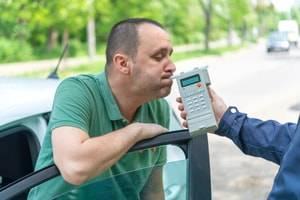Four Errors That Occur in Breath Alcohol Tests
 Of the methods for testing someone’s blood alcohol concentration, blood tests are considered the most accurate. However, a breath test is more useful to police officers who are trying to establish probable cause to arrest someone for driving while intoxicated. It is more difficult to get a suspect to give a blood sample, and the results are not available until the blood has been taken to a lab for testing. By contrast, a breath test may be as simple as the subject breathing into a portable device, and officers can obtain immediate results in the field. Drivers who are stopped on suspicion of DWI should be cautious about agreeing to a breath test, even if they have had little or nothing to drink. There are several reasons that a breath test may give an inaccurate reading, leading to your arrest:
Of the methods for testing someone’s blood alcohol concentration, blood tests are considered the most accurate. However, a breath test is more useful to police officers who are trying to establish probable cause to arrest someone for driving while intoxicated. It is more difficult to get a suspect to give a blood sample, and the results are not available until the blood has been taken to a lab for testing. By contrast, a breath test may be as simple as the subject breathing into a portable device, and officers can obtain immediate results in the field. Drivers who are stopped on suspicion of DWI should be cautious about agreeing to a breath test, even if they have had little or nothing to drink. There are several reasons that a breath test may give an inaccurate reading, leading to your arrest:
- Equipment Errors: The breath test device, commonly called a breathalyzer, must be periodically calibrated to ensure that its readings are accurate. When a breathalyzer is used frequently, its sensors can become saturated, causing readings to be inaccurately high. Law enforcement cannot know whether the equipment has been affected in this way unless they check the device on a regular schedule.
- Software Errors: While the hardware collects the breath sample, the software interprets the sample to determine a BAC level. Seemingly reliable software can have glitches or bugs that affect the readings. This is more likely to happen if the law enforcement organization is using an older and outdated software system.
- Nonalcoholic Substances: A breathalyzer can mistake other substances for alcohol, causing an artificially high BAC reading. These substances may include mouthwashes, breath fresheners, and acetones that are present in the breath of diabetics. Your breath can also be contaminated if you have recently inhaled gasoline, glue, paint or thinner.
- Residual Alcohol: The recent presence of alcohol in your mouth will create a reading that is higher than your actual BAC. Because of this, a police officer is required to wait and watch you for 15 minutes before giving a breath test to make sure you have not consumed any alcohol, burped or vomited. Failing to do so makes the results unreliable.
Contact a San Antonio DWI Defense Attorney
It is advised that you refuse a breath alcohol test during a DWI stop. If you did submit to the test, a San Antonio DWI defense attorney at the Law Offices of Sam H. Lock can review the test process and dispute the results during your case if there is a good reason to believe that they are inaccurate. Schedule your consultation by calling 210-226-0965.
Source:
https://www.webmd.com/mental-health/addiction/breath-alcohol-test#1





